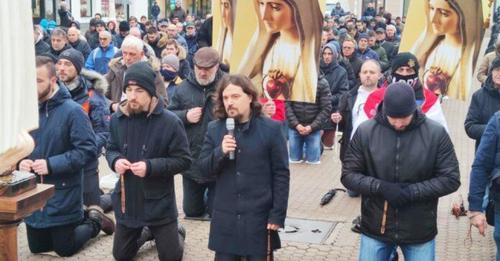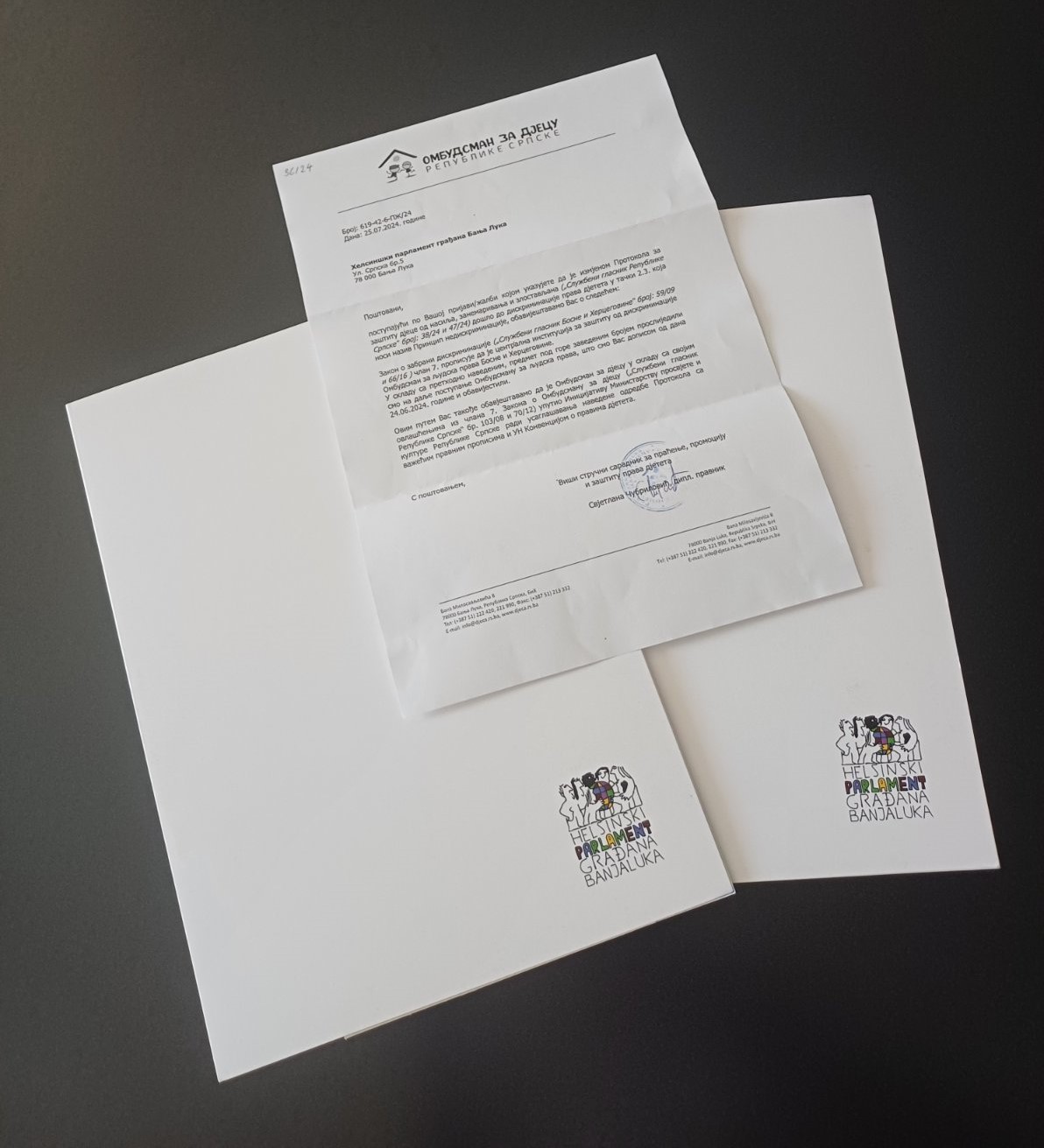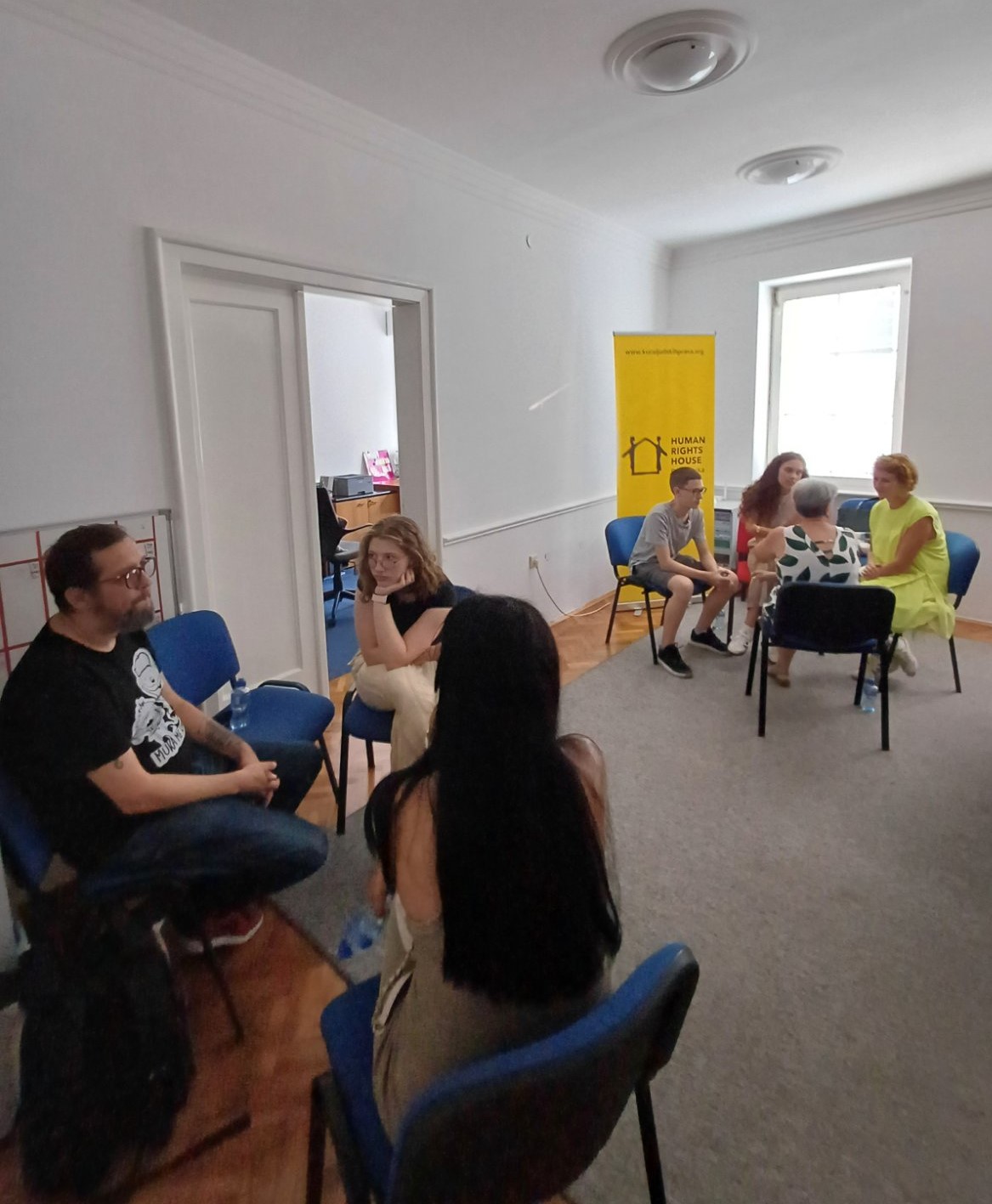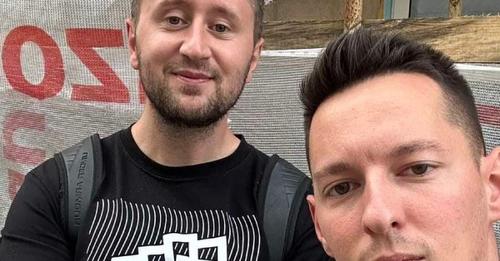After the Constitution of Bosnia and Herzegovina, we analyzed the constitutions of the Republic of Croatia and the Republic of Serbia
It is known that the constitution is the highest legal and fundamental act of a state, and as such it serves as the basis for the creation of all other legal and secondary legal acts. Times of desecularization, strengthening of fascist ideologies and pressure pushed the issue of gender equality aside. After we talked about the Constitution of Bosnia and Herzegovina, we also researched the Constitution of the Republic of Croatia and the Constitution of the Republic of Serbia.
SPECIAL LAW IN CROATIA
Article 3 of the Constitution of the Republic of Croatia states that “freedom, equality, national equality, peacemaking, social justice, respect for human rights, inviolability of property, preservation of nature and human environment, the rule of law and a democratic multiparty system are the highest values of the constitutional order of the Republic of Croatia”.

Nela Pamuković and Nikolina Zec from the Center for Women Victims of War – ROSA point out that “the policy of gender equality and women’s empowerment, as one of the fundamental principles of the democratic structure and social order in Croatia, was accepted at the highest state level by the decisions of the Government of the Republic of Croatia and the Croatian Parliament through the adoption of national strategic plans for action”.
– Croatia passed a special law back in 2003 – The Law on Gender Equality, which prescribes the development of a national policy for the promotion of gender equality, establishes the general basis for the protection and promotion of gender equality as a fundamental value of the constitutional order of the Republic of Croatia, and defines and regulates the method of protection against discrimination based on gender and creating equal opportunities for women and men. In Croatia, the National Plan for Gender Equality for the period until 2027 is currently in force. This document states that “the principles of gender equality are the foundation of modern democratic states, so gender equality is included in the highest values of the constitutional order of the Republic of Croatia, and is an integral part of the EU Treaty and the Treaty on the Functioning of the EU”, Pamuković emphasizes.
He explains that at the national level, the Constitution of the Republic of Croatia is the fundamental legal and political act in the Croatian legal system and as such has the highest legal force, which is why all legal regulations must be harmonized with it, as well as the actions of all state bodies and bodies exercising public powers.
For years, in addition to prayers and banners around hospitals or in front of the entrance to Croatian hospitals, some of the petitioners additionally harassed women who decided to exercise their legal right to an abortion
Explaining the aforementioned Article 3, Pamuković points out that the provisions of the Constitution are elaborated further in certain laws and by-laws that jointly represent the basis of anti-discrimination legislation and are significant for the area of gender equality: Law on Gender Equality, on Protection from Domestic Violence, Criminal Code, Labour Law, on Life Partnership of Persons of the Same Sex, on Professional Rehabilitation and Employment of Persons with Disabilities, on the Rights of Victims of Sexual Violence during the Armed Aggression against the Republic of Croatia in the Homeland War, on Preschool Upbringing and Education, on Upbringing and Education in Primary and Secondary Schools, Family Law, Health Care Law and many others.
– The European Commission deals with the prevention of hate speech, as well as the implementation of measures against gender stereotypes. The Council of Europe also shares the same views, and in its Strategy for Gender Equality 2018-2023, “set out the prevention and suppression of gender stereotypes and sexism as a strategic goal”. At the same time, it defines gender stereotypes as “pre-created social and cultural patterns or ideas that attribute characteristics and roles to women and men that determine and limit their gender…” Pamuković explains.
He adds that for several years there have been several initiatives to include in the Constitution a provision on a woman’s right to choose birth.
– In 2022, the parliamentary committees for the Constitution, Rules of Procedure and Political System (35th session) and for legislation, at a joint session, did not support the proposal of 40 representatives from the left-liberal opposition clubs, along with some representatives of the ruling majority from the HSLS and Reformists. They asked to include in the Constitution that a woman can decide independently and freely about giving birth, and that the state ensures the prerequisites for exercising that right, and that the right to choose is maximally protected and guaranteed to every woman, Pamuković said.
Zec adds that, “unlike the socialist Constitution, which was based on secularism and anti-fascism, and which contained certain provisions such as the one on the freedom of childbirth, including access to legal abortion, the Constitution of the nation state from the 90s abolished those rights”.

– Subsequent interventions in the Constitution introduced provisions incompatible with the substance of the Constitution itself, as well as with the principle of secularism, human rights and the principle of gender equality. Although gender equality is the greatest value of the constitutional order, in practice it is only a letter on paper, warns Zec.
Our interviewees point out that basic women’s rights have been continuously attacked in the Republic of Croatia for years, even for decades, especially from the Catholic Church and Catholic-fundamentalist groups such as Opus Dei and Ordo Iuris.
– There are also various other initiatives and projects such as the Knights of the Immaculate Heart of Mary, the Vigilare and the Be a Manly project, which every first Saturday of the month organize kneeling and prayer in the main city squares throughout the Republic of Croatia where they say they are praying for “homeland, peace and conversion of the Croatian people, for men – to become spiritual authorities in the family who transmit the Catholic faith, premarital chastity, for chastity in dress and behavior and for the renewal of Catholic marriages, for the end of abortions, for souls in purgatory”, explains Zec.
He notes that for years prayers have also been held in front of hospitals where abortions are performed, and women who go for check-ups in those hospitals are harassed.
– The so-called the prayer action of the initiative 40 Days for Life organizes prayers in front of hospitals in Croatian cities against abortion. For years, in addition to prayers and banners around hospitals or in front of hospital entrances, some of the petitioners additionally harassed women who decided to use their legal right to an abortion, putting direct pressure on them to give it up, and even posted on social networks personal data of some women who had an appointment for an abortion in hospitals. There is also the so-called March for Life, Family and Croatia, which is organized in several cities in May, which demand a ban on abortion. In 2003, new Catholic-fundamentalist organizations succeeded in ending access to legal abortion. The Republic of Croatia introduced provisions in several laws that year. First of all, the Law on Medicine (“Appeal for Conscience”, Article 20) was introduced. The Law states that “for the sake of his ethical, religious or moral views, i.e. beliefs, a doctor has the right to appeal to his conscience and refuse to carry out diagnostics, treatment and rehabilitation of a patient if this does not conflict with the rules of the profession and if it does not cause permanent consequences for health or does not endanger the patient’s life. He/she must inform the patient about his decision in a timely manner, and refer her to another doctor of the same profession,” explains Zec.
Pamuković adds that there are various other retrograde policies that threaten the equality of women in society: inadequate public policies related to violence against women and lead to a superficial view of a critical social problem, lack of statistical monitoring of violence against women, inadequate legal framework, implementation non-scientific models in the education of public servants, such as the introduction of the so-called concept of alienation.
– A drastic problem in Croatia is the very high percentage of women being punished for the violence they suffered from their partners. I would also add the punishment of women in prostitution, while sex buyers are not punished in any way… The Republic of Croatia de iure and de facto has not fully recognized the structural nature of violence against women as gender-based violence. The problem of not recognizing the structural nature of this form of violence leads to further problems in incriminations, and also in the duality of misdemeanor and criminal regulation of the problem of violence, because the legislator does not distinguish gender-based violence from other forms of violence that can occur in the family. At various professional discussions, in working groups, the issue of gender-based violence is very often downplayed, ignored and placed in the general context of violence, despite the existence of a number of international documents that oblige the state to focus special attention on gender-based violence. Considering that gender-based violence is that which is directed at a woman because she is a woman or which disproportionately affects a woman, the mechanisms of the state should be more efficient, and the promotion of full equality should be much more strongly expressed both through the legal framework and through good practices, emphasizes Pamuković.
Pamuković and Zec remind that women’s organizations in the Republic of Croatia sent a number of documents to international bodies, in order to warn about the inadequate position of women in society.
Snježana Pavić, a journalist from Jutarnji List, also believes that it is important to speak publicly about gender equality, that is, to speak openly about the position of women in society and in the family, because most are not aware that women are systematically discriminated against in their daily lives, that in practice they do not enjoy the same rights as men.
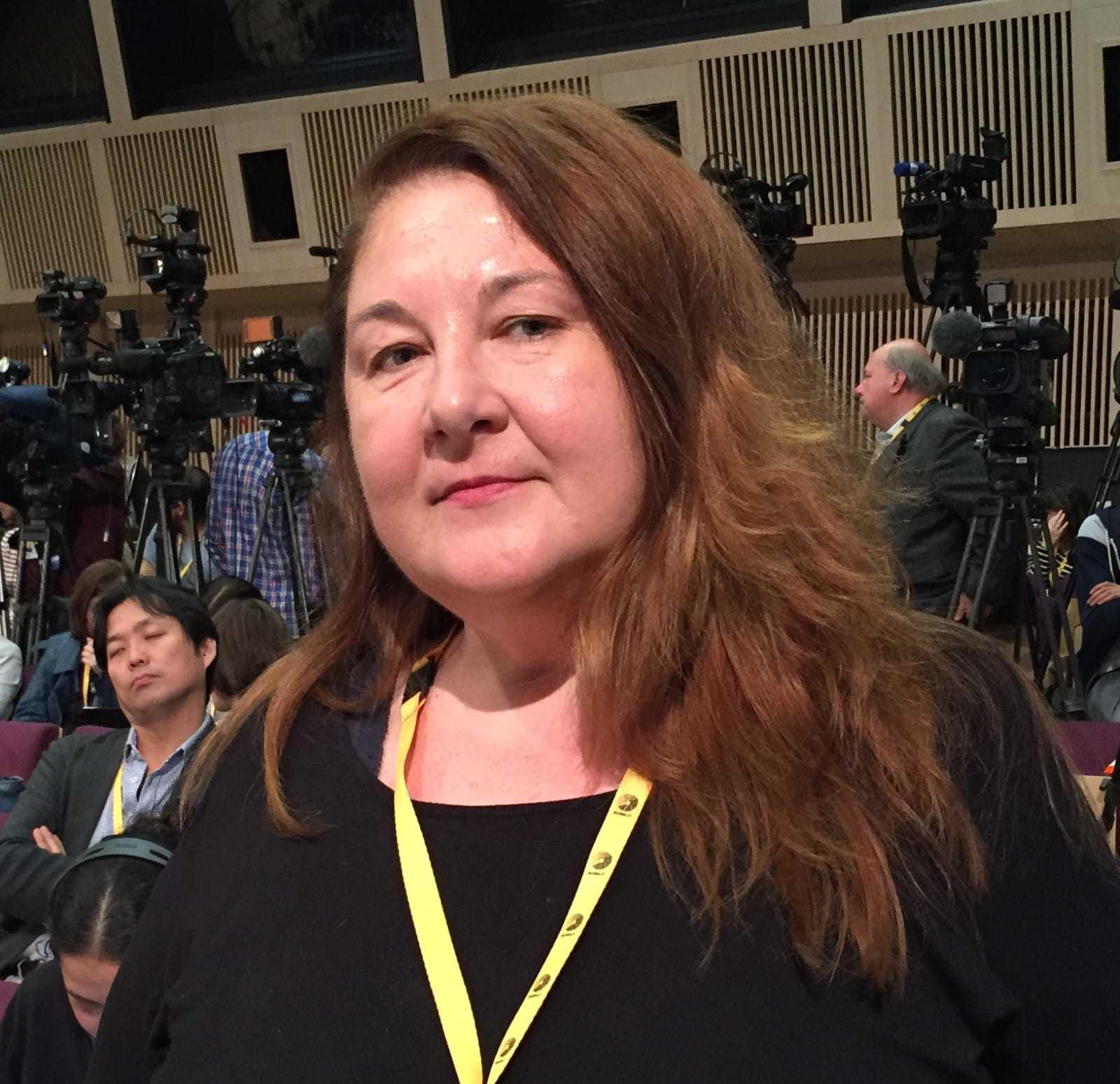
– When we say human, we mean a man, and then we warn of the danger of a heart attack, with the well-known symptoms that affect men. While women die because they do not know how to recognize a heart attack in themselves, because the symptoms in women are different. The ruling view of the world is a male view, so we do not talk about painful periods, about menopause, about the fact that a woman will do all the work at home, take care of the children, her and her husband’s family, and at work, regardless of how much tried, to have significantly less chance of advancement. It is important to talk about it so that we can change it. Maybe our mothers accepted as normal that in addition to all the work at home, they also work outside the home and bring in a salary, but this is physically unsustainable and socially unacceptable, because women are not slaves, and we do not live in feudalism, so it is normal that one group exploits and abuses another. We also need to speak much more loudly about the fact that women are massively exposed to violence from an early age, from pinching in elementary schools, to partner violence – and that society treats it as normal. No, that cannot be normal, Pavić is categorical.
He points out that Article 14 of the Constitution of the Republic of Croatia emphasizes the equality of all citizens, regardless of race, skin color, gender, language, religion, political and other beliefs, national and social origin.
– We also have the Law on Gender Equality from 2008, we ratified the Istanbul Convention, at the end of March the Government adopted the National Plan for Gender Equality until 2027, together with the Action Plan: these documents define what needs to be done in order to make equality from the Constitution a reality, he says Pavićeva.
Speaking about retrograde policies, she points out that since the beginning of the 90s in Croatia and other countries of the region, a process of re-traditionalization has been noticed because, he says, the nationalist policies that win the first democratic elections are everywhere dominantly male, patriarchally male, and women are losing political representation and visibility in media won in late socialism.
– However, research in Croatia has shown that the process of modernization has continued in the private sphere, so more girls are graduating from university, and young fathers more often than older generations take on more of the household responsibilities and childcare. Abortion was banned in Poland after the democratic changes, but in most EU countries, slow progress towards the achievement of women’s equality is visible, says this feminist and journalist.
Referring to BiH, he points out that the problem is that the highest legal act is also a peace agreement, so it is difficult to expect that it could be changed, because the three parties cannot come to an agreement.
He wonders if the high representative in BiH could impose a section on human rights and gender equality.
– In Croatia, conservative forces – wishing to prevent the legalization of same-sex marriages – managed to change the Constitution so that thanks to the 2013 referendum, marriage is now defined in the Constitution as “the union of a man and a woman”. Therefore, it is possible to change the Constitution of the Republic of Croatia in the Parliament, with a two-thirds majority of the representatives’ votes, or with a referendum, with a majority of the votes of the voters, Pavićeva explains.
THE SOCIAL IDEAL IN SERBIA
The Constitution of the Republic of Serbia incorporates the field of gender equality, and Article 15 states that “the state guarantees the equality of women and men and develops a policy of equal opportunities”. Within the framework of the Prohibition of Discrimination, Article 21 states that “any discrimination, direct or indirect, on any basis, especially on the basis of race, gender, nationality, social origin, birth, religion, political or other belief, property status is prohibited, culture, language, age and mental or physical disability”. Within the item Special Potection of the Family, Mother, Single Parent and Child, it is stated that these four categories enjoy special protection, and that the mother is provided with special support and protection before and after childbirth.
In Serbia, which is headed by a female prime minister in her third term, who freely enjoys a same-sex union that neither she nor others like her in Serbia are allowed by law, the very top of the state treats the laws cynically.
Adriana Zaharijević, feminist, philosopher and translator, senior research associate at the Institute for Philosophy and Social Theory of the University of Belgrade, points out that gender equality is, for now, a social ideal, regardless of its legal status.

– It has not been fully achieved in any society in the world, despite the fact that it has appeared as a legal document under different names since the first half of the 20th century. Gender equality refers to human dignity, full freedom and equality in a just and democratic society: and, as we know, this cannot just be prescribed by law and stop there, says Zaharijević.
He adds that there are few constitutions like the US Constitution, which have not been changed for centuries.
– On the contrary, the vast majority of European constitutions have been changed to adapt to the spirit of the times and it is conceivable that they will continue to be changed. Constitutional ethnography as a method can help us see what were the fundamental values stored in constitutions, and our region provides particularly valuable material for that, the feminist emphasizes.
She points out that the Constitution of the Republic of Serbia, Art. 15, guarantees the equality of women and men, with an indication that the state is developing a policy of equal opportunities.
– Within the scope of Art. 60 which guarantees the right to work, women are guaranteed special protection at work and special working conditions, as well as “youth and disabled”. In the other articles of the Constitution, women are included under the pronoun “everyone”, which also refers to the essential articles 62 and 63, which guarantee the right to conclude and dissolve marriage and the equality of spouses and non-marital partners, i.e. the right to freely decide on childbirth, she emphasizes .
He notes that over the last decade, retrograde policies have been gaining ground.
– An example of this can be offered by Poland, where in narrowing down the very limited right to freedom of reproduction, they resorted to redefining the meaning of the term “human being” in the constitution. However, the narrowing of reproductive rights is not the only one under attack. Under the auspices of caring for the family, which is often another name for the fear that the nation/white European/Christian “civilization” is disappearing, many won rights that are an integral part of the idea of gender equality are put to the test, primarily in the countries of Eastern Europe. The region is not far behind in the spread of “moral panic”, so gender equality is increasingly wrapped up in rhetoric about “gender ideology”, explains Zaharijević.
In countries like the Republic of Serbia, where rights are guaranteed, she says, to begin with, they need to be respected.
– It is also necessary to implement those laws that exist in that area, such as the Law on Gender Equality (2021), and then pass those laws that fall into the corpus of laws on gender equality, such as the law on same-sex unions, the adoption of which stopped the same year. In Serbia, which is headed by a female prime minister in her third term, who freely enjoys a same-sex union that neither she nor others like her in Serbia are allowed by law, the very top of the state is cynical about the laws of the country it leads and represents, finds Zaharijević.
(The text was written in cooperation with the Initiative Women Citizens for Constitutional Reform. In the following Views, we talk about gender equality and the Constitution in Montenegro)

